Key Questions/Topics
- “How do states become powerful?”
- “Does ethnic diversity cause violent conflict?”
- “Why are women more politically powerful in some countries than others?”
- “Does greater civic participation lead to better democracy?”
- “Why are some countries rich and others poor?”
Overview
- Theoretical perspectives
- Elements of an explanation
- Correlation versus causation
Theoretical Perspectives
- Rational choice
- Cultural perspectives
- Structural perspectives
Variables
-
Dependent variable–Effect or outcome that we want to explain
-
Independent variable–The factors that explain/cause the outcome; also referred to as an “explanatory variable”
Silly tree example


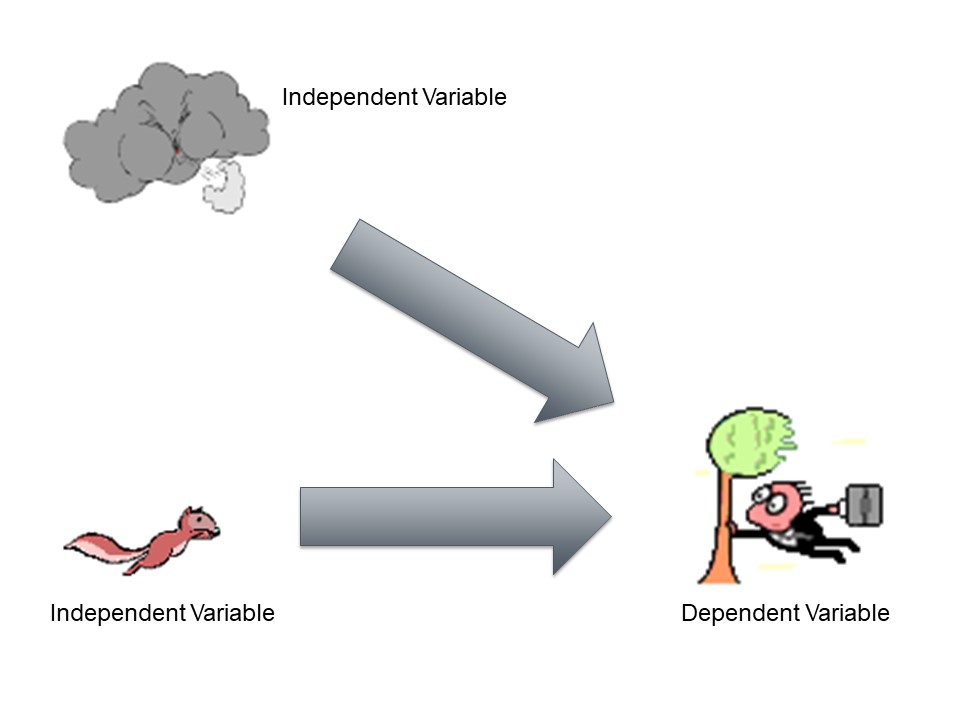
Political Science Examples
How would you “operationalize” the study of these questions with independent and dependent variables?
- “How do states become powerful?”
- “Does ethnic diversity cause violent conflict?”
- “Why are women more politically powerful in some countries than others?”
- “Does greater civic participation lead to better democracy?”
- “Why are some countries rich and others poor?”
Causal Mechanisms
-
Set of intervening factors or variables (or ‘causal sequence’) that links an independent variable to a dependent variable
-
The story of the relationship between variables
-
The “because” of the relationship
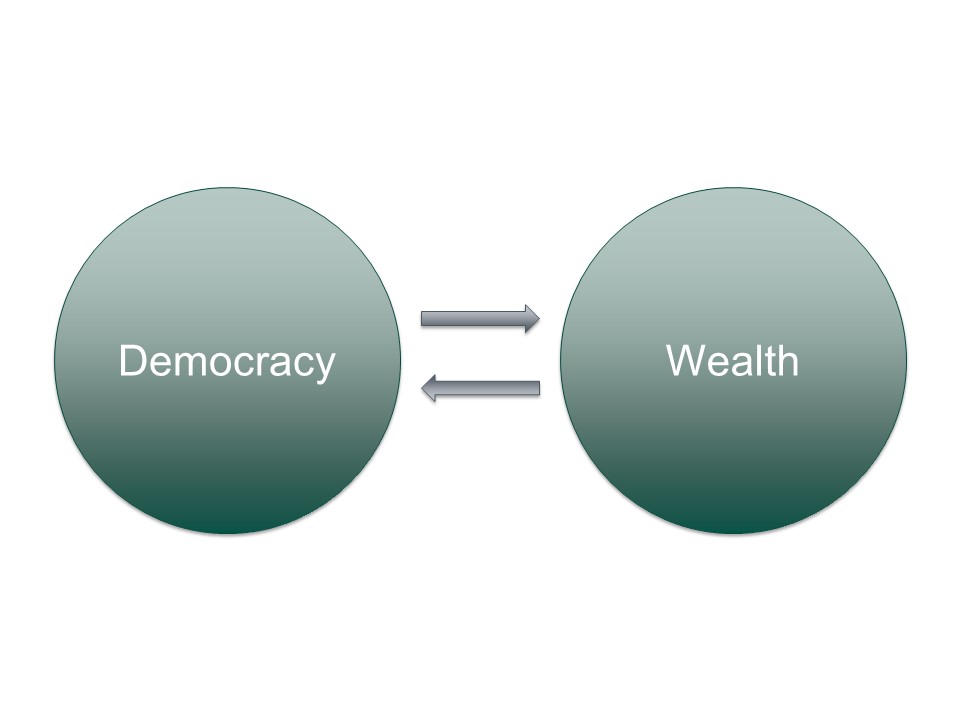
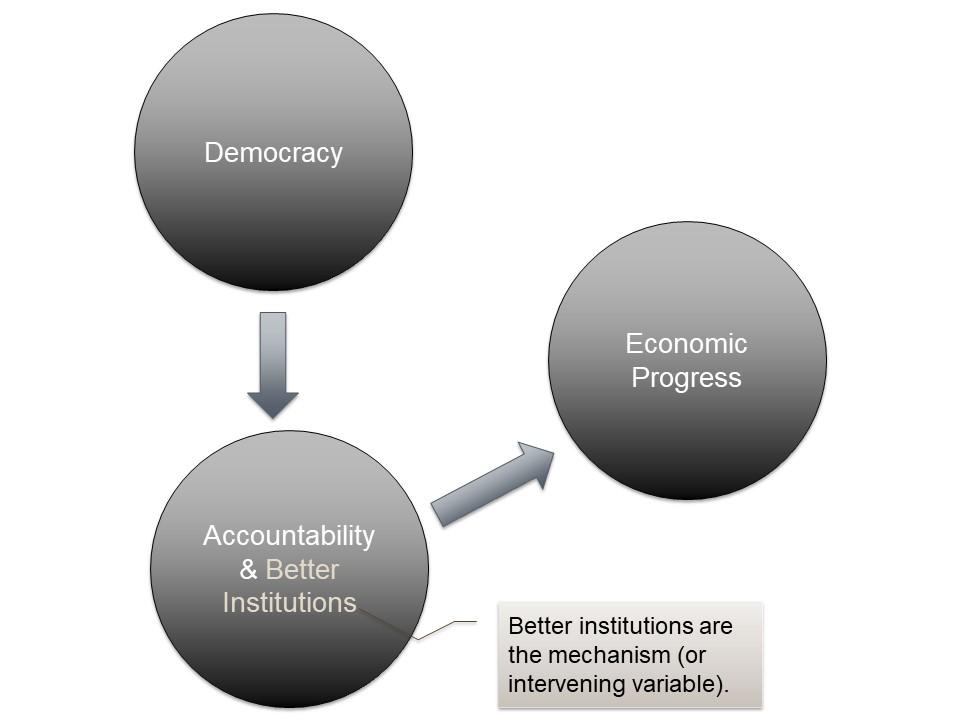
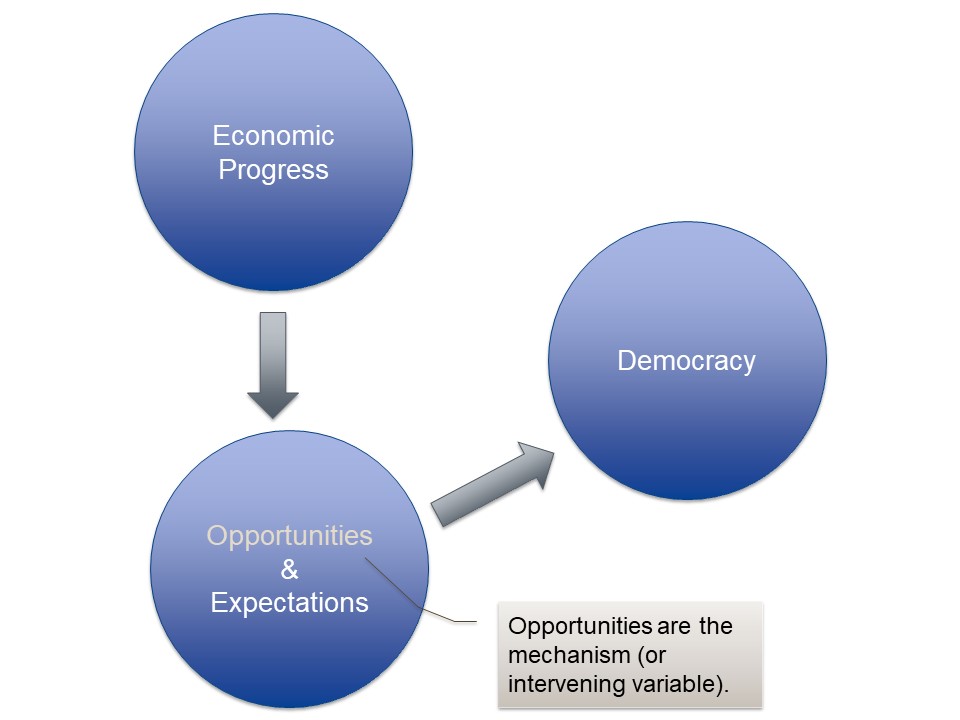
Spurious Correlation
-
Does correlation = causation?
-
Spurious correlation occurs when two variables appear to be directly linked in a cause-effect relationship but in fact (a) there is no causal link whatsoever; or (b) they are linked indirectly by some other causal variable or variables
-
Occurs when we cannot specify or demonstrate the mechanism
Silly ice cream example

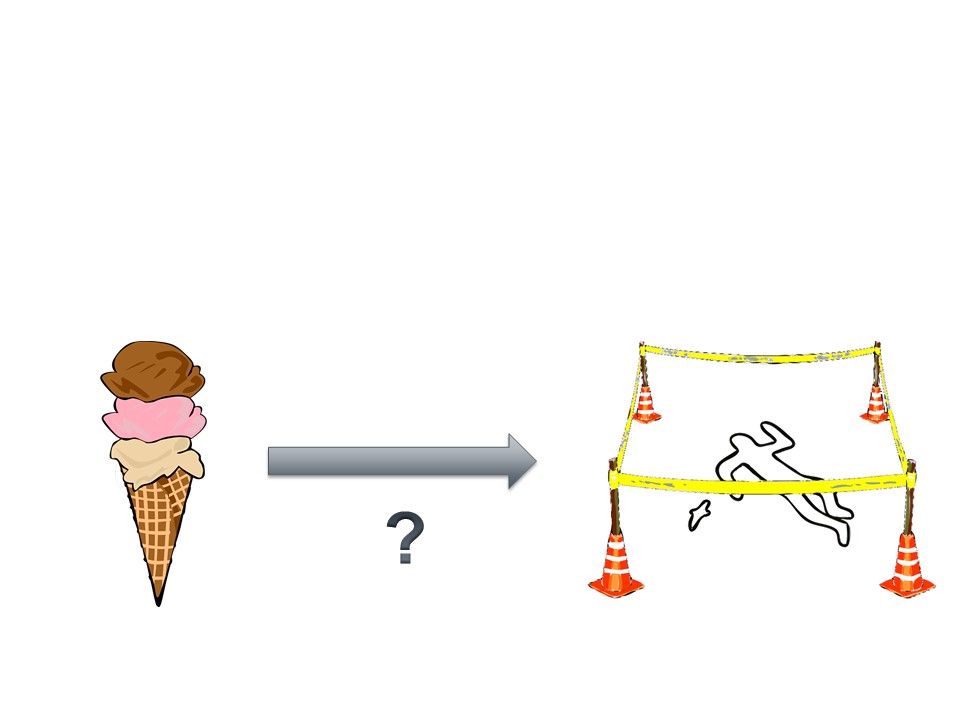
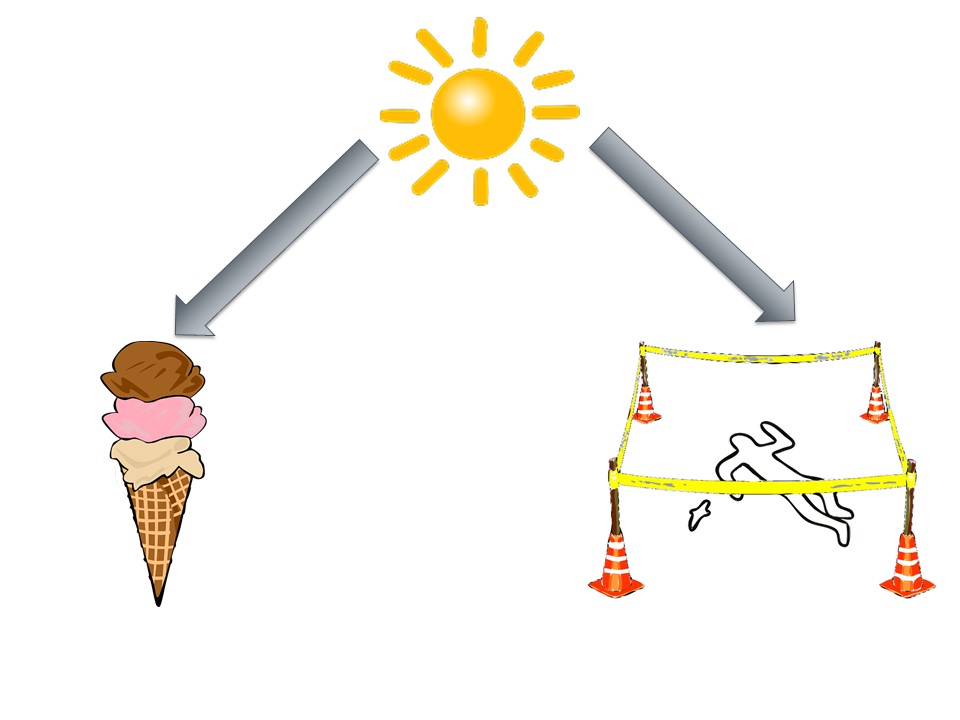
Political Science Examples
-
Foreign aid and political stability (natural disasters)
-
Civil society and democracy (wealth)
-
Electoral institutions and economic performance (colonialism)